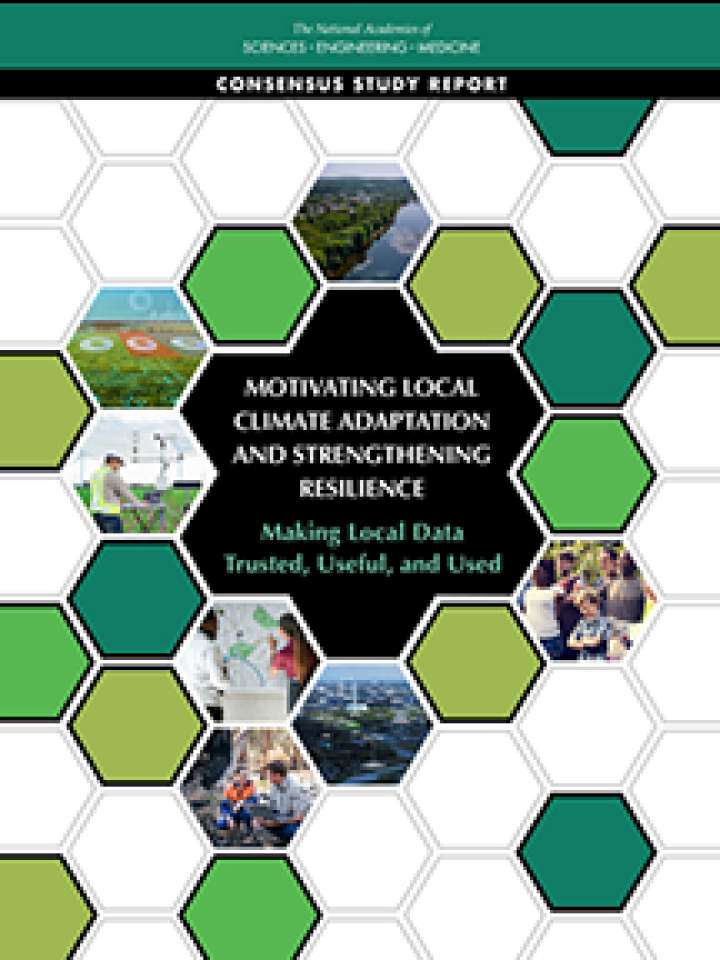Motivating local climate adaptation and strengthening resilience
This report discusses how to help reduce the immense human and financial toll of disasters caused by natural hazards and other large-scale emergencies, the Committee on Applied Research Topics for Hazard Mitigation and Resilience has been charged with identifying applied research topics, information, and expertise that can inform action and identify collaborative priorities to advance natural hazard mitigation and resilience. The committee, which was formed at the request of the Federal Emergency Management Agency (FEMA) by the Resilient America Program of the National Academies of Sciences, Engineering, and Medicine, selected two large-scale themes within which to identify applied research topics. An initial report examined the theme of Social Capital and Social Connectedness for Resilience.1 A second report, detailed here, considers the theme of Motivating Local Climate Adaptation and Strengthening Resilience.
To meet this charge, the committee organized a public, 1 day-long virtual workshop to survey existing knowledge and practice, featuring a diversity of voices and expertise on this topic. Based on information from this workshop and committee members’ backgrounds and experience with hazard mitigation and resilience, three topics were identified as being particularly important for motivating local climate adaptation and strengthening resilience: (1) co-production of stakeholder-friendly data and useful information with local communities, (2) development of integrated local approaches to strengthening climate adaptation and resilience, and (3) building trust in data, processes, and partners to motivate local climate action.
On the first topic, co-production of stakeholder-friendly data and useful information with local communities, data need to be converted into useful, valid information for communities to make decisions and investments that ensure the safety and resilience of their residents, economy, and environment. Information that communities receive needs to reflect the challenges and opportunities of those communities so that it will not just be useful, but also used.
Collaborative relationships between all stakeholders who transfer data, information, knowledge, and insight into on-the-ground needs, opportunities, and constraints for community action can enable broader agreement for critical, life-saving decisions and actions. Co-development and co-production of data and information provide useful approaches to collaborative work between stakeholders.
Translating data into information can imply a one-way process, but a better concept may be a crosswalk in which data providers and users in the community examine available data to determine their applicability relative to the community’s needs. Collaborative relationships between all stakeholders can enable shared understanding of issues and broader agreement and buy-in to decisions and actions.
A clearinghouse of climate data and analysis tools that are vetted for quality and applicability by hazard, location, and audience could be useful for many communities.
Explore further
